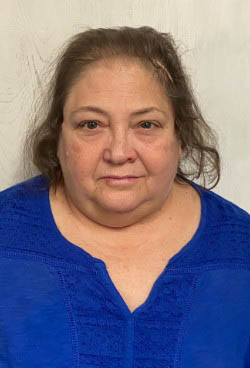Laura Pavlicek Overcomes Meningioma
It started out with shortness of breath, so Laura Pavlicek saw a cardiologist who diagnosed atrial fibrillation. “Then my daughter, my husband, and I decided we wanted to get healthy,” says Pavlicek, 63. “We started exercising at a park, and I kept losing my balance. Then I couldn’t remember things. I used to pay the bills and didn’t care about doing it any longer. When I started losing interest in things, my husband said something is wrong.”
 Shortly afterwards, Pavlicek was coming home with her mother-in-law, and while unlocking the front door, she cut her head on the door hanger. The two women went to a nearby urgent care center, where the emergency physician ordered a CT scan and discovered a large mass in the frontal area of her brain.
Shortly afterwards, Pavlicek was coming home with her mother-in-law, and while unlocking the front door, she cut her head on the door hanger. The two women went to a nearby urgent care center, where the emergency physician ordered a CT scan and discovered a large mass in the frontal area of her brain.
“I thought I was going to get a couple of stitches and come home, but they referred me to the neurosurgery clinic, where I met Dr. Vigneswaran,” she says.
Krish Vigneswaran, MD, an assistant professor in the Vivian L. Smith Department of Neurosurgery at McGovern Medical School at UTHealth Houston, is a fellowship-trained neurosurgeon with expertise in spine and brain tumor surgery. He ordered an MRI and went over the results with Pavlicek and her family in clinic at UTHealth Houston Neurosciences – Southwest.
“Mrs. Pavlicek had a large olfactory groove meningioma causing compression that affected her equilibrium,” Vigneswaran says. “This type of tumor grows at the front of the skull near the olfactory nerves and requires a delicate touch due to its proximity to the optic nerves and large blood vessels. When she thought about it, she realized her sense of smell and taste also had been affected. Because of the size of the lesion and her symptoms, we determined that she would need surgery.”
Vigneswaran took his patient to the OR in July 2021. Using a hair-sparing bicoronal incision across the back of her hairline, he moved the scalp forward and performed a craniotomy just above the eyebrows. Using specialized neurosurgical instruments and an ultrasonic aspirator that vibrates tissue at high pressure, he debulked the lesion, found its edges, and removed it, allowing the brain to fold in and fill the tumor cavity.
“I didn’t know how I would come out,” Pavlicek says. “Would I remember my kids? How much therapy would I need? After the surgery I recognized my family right away, and I thought, ‘It’s going to be okay.’ They put 46 staples in my head and about 20 stitches. Other than having to sleep on my back for two weeks – I’m a side sleeper – recovery from the surgery was not bad at all. In fact, I was surprised at how easy it was.”
At the UTHealth Houston Neurosciences combined interdisciplinary clinic, she also saw radiation oncologist Mark Amsbaugh, MD, an assistant professor of neurosurgery at McGovern Medical School, who thought she might need a future dose of radiation based on the grade of the meningioma. “This is a benefit of our clinic,” Vigneswaran says. “Patients can see the neurosurgeon and radiation oncologist in the same visit so we can discuss the case together with all team and family members present to avoid a disconnect in communication.”
Pavlicek currently is being monitored closely by both physicians. “I love both doctors,” she says. “They are very knowledgeable and professional, and they made me feel at ease. I never ever follow my doctors’ orders, but I behaved myself. I got some weights and a stationary bike and did my therapy at home.”
Pavlicek says the experience made her view her life differently. “When you learn that you have a brain tumor, your priorities change,” she says. “If I hadn’t hit my head, I wouldn’t have known about it. I attributed my lack of balance to my klutziness.”
In the end, she underwent surgery for a large, very challenging but benign meningioma without issue. “With our team in the OR and our 36-bed Neuroscience ICU, we can do this type of surgery outside the Texas Medical Center, allowing our patients to receive expert care in their own communities,” Vigneswaran says.











